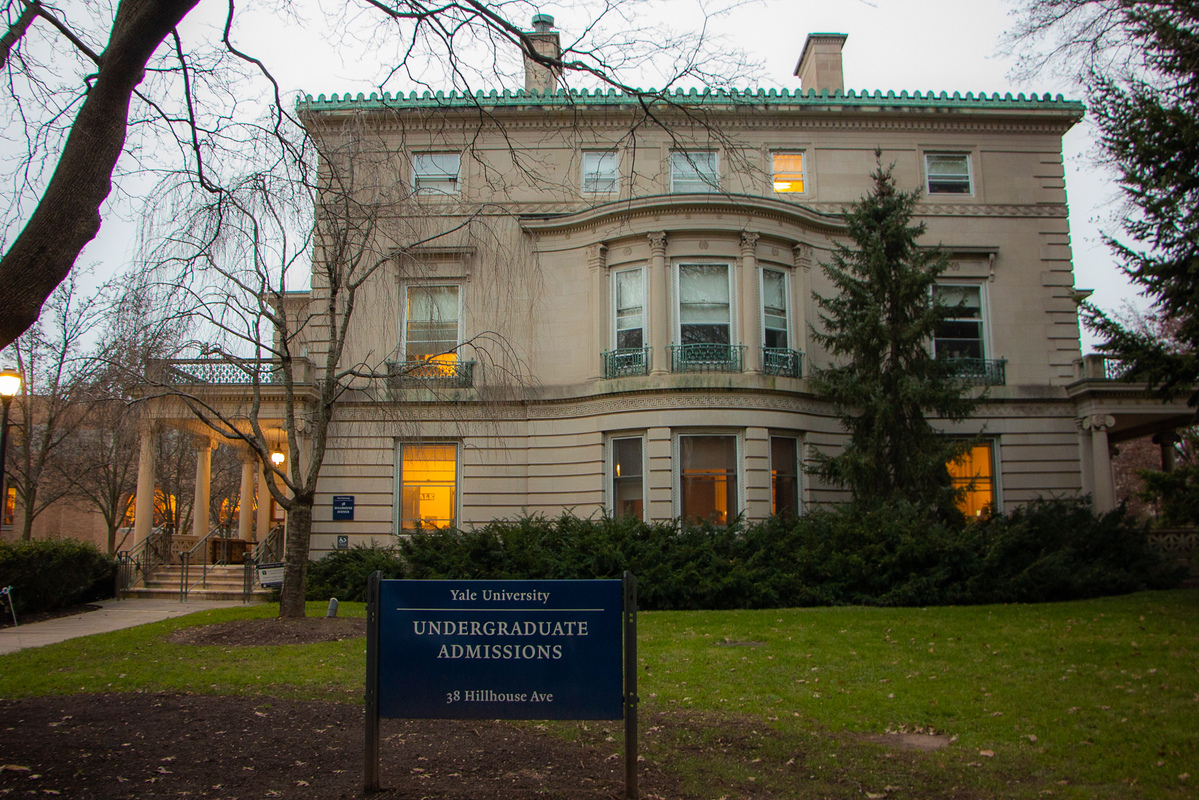Yale receives largest-ever applicant pool
More than 57,000 students sought admission to the Yale College class of 2028, the most applicants in Yale’s history. The admissions office saw increases in applications from first-generation college students and students from neighborhoods with below-median household incomes.

Logan Howard, Senior Photographer
The Yale College class of 2028 will be selected from the College’s largest-ever applicant pool.
A total of 57,512 students sought admission to the class of 2028, marking a 10-percent increase in applications from last year. Within the pool, trends showed increased applications from first-generation and low-income students, in line with the admissions office’s goals of increasing outreach to those demographics. The pool will be the first to be evaluated since the fall of affirmative action last summer. If admitted, applicants will join the 709 students offered early admission to the class of 2028 in December.
“It is heartening to see that high-achieving students from all across the country and around the world are identifying Yale as a good fit in their college search process,” Jeremiah Quinlan, dean of undergraduate admissions and financial aid, wrote in an email to the News. “Attracting an excellent and diverse applicant pool is the first step in building a class filled with students whose strengths make Yale a better place to learn.”
Within the record-large applicant pool, applications from students from first-generation college students and students from neighborhoods with below-median household incomes increased disproportionately. The former increased 13 percent more than the overall pool and the latter increased 19 percent more.
Zooming out further, over the past decade, applications from first-generation students have increased at 1.5 times the rate of the overall applicant pool, and applications from students in lower-income neighborhoods increased by twice the overall rate in the past decade.
Mark Dunn ’07, senior associate director for outreach and recruitment at the Office of Undergraduate Admissions, said that students from these backgrounds have been a priority in the admissions office’s outreach efforts for many years.
Applicants who applied to enroll in the fall of 2020, or to join the class of 2024, were the last class to apply before the COVID-19 pandemic and before the start of Yale’s extended test optional policy.
In the three application cycles since the pandemic — those for students applying to join the classes of 2025, 2026 and 2027 — applications from international students grew at three times the rate of domestic students.
But this year, applications from both domestic and international students increased at the same rate, for the first time since the pandemic, according to Dunn.
Dunn emphasized that a large applicant pool does not necessarily indicate successful outreach by the admissions office.
The strength of the pool is instead measured by the applicants’ academic strength and diversity of experiences, he said, which can only be revealed through the office’s whole-person review.
“I think the trends we’ve seen in our applicant pool and our incoming first-year class strongly suggest that our messaging about Yale’s extraordinary need-based financial aid is reaching more high-achieving students from lower-income backgrounds than ever before,” Dunn wrote in an email to the News. “I also believe students of all backgrounds are drawn to Yale’s diverse and supportive community, its rigorous but flexible liberal arts program, and its extraordinary academic resources.”
The Supreme Court ruled to end affirmative action in higher education on June 29, 2023.







